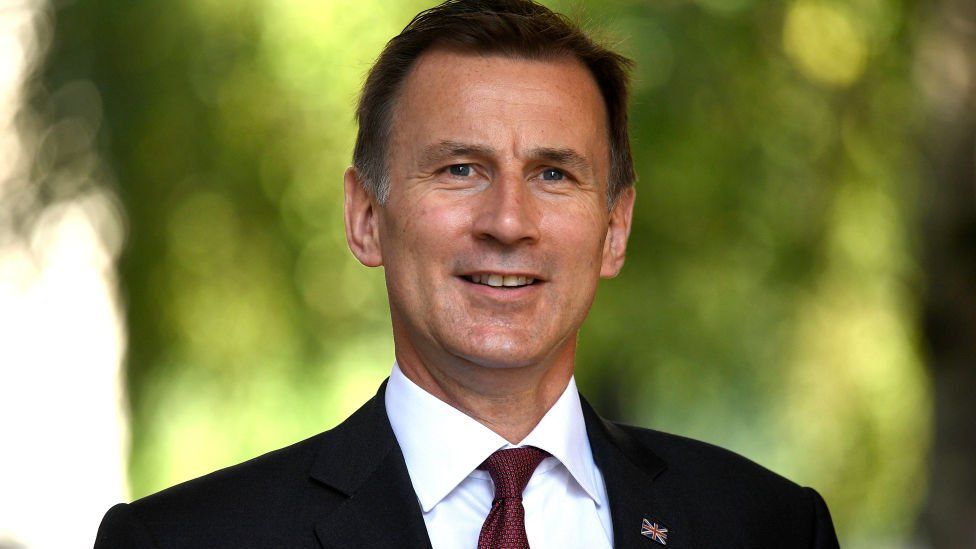
Social care must be adequately funded, Justice Secretary Robert Buckland has said, amid reports ministers plan to raise national insurance.
Downing Street did not deny reports of an increase of at least 1% to improve social care and tackle the NHS backlog.
The justice secretary said he would not "speculate" but said there should be a "grown-up conversation" about how to pay for rising social care costs.
The move would break a Tory manifesto commitment at the last election.
"The British public are sensible enough to know that when it comes to the issue of social care we have to find some way in which it will be adequately funded," Mr Buckland told BBC Breakfast.
He said that the Conservative Party had also promised at the 2019 election that it would bring forward sustainable proposals to fund social care.
The Daily Telegraph reports that Downing Street favours a 1% rise in the national insurance rate, affecting about 25 million workers and self-employed people, as well as employers. But it says the Treasury is pushing for a 1.25% increase.
And the Times adds that Health and Social Care Secretary Sajid Javid wants a bigger rise of 2%.
But a source close to Mr Javid said that 2% figure was incorrect and the BBC understands the health secretary is pushing for a lower figure.
For someone on average earnings of £29,536 a year, a 1% increase in national insurance would cost them £199.68 annually.
The Telegraph says the funds will be used to put a cap on the amount an individual has to spend on social care costs over their lifetime.
In their manifesto, the Conservatives said: "The prerequisite of any solution will be a guarantee that no one needing care has to sell their home to pay for it."
The government said it was "committed to bringing forward a long-term plan to reform the social care system".
In a statement, it said proposals would be set out this year.
Labour said the NHS and social care needed proper investment but it was wrong to raise national insurance., which would disproportionately hit low-earners, young people and businesses.
"Boris Johnson still hasn't come forward with the plan for social care he promised over two years ago, and instead they're proposing a manifesto-breaking tax rise that would hit working people and businesses hard," said shadow chief secretary to the Treasury Bridget Phillipson.
It comes as former health secretary Jeremy Hunt wrote in the Daily Telegraph that there should be a new "health and care premium" added to tax instead, as he warned against raising national insurance or income tax.
Mr Hunt, who now chairs the Commons health committee, told BBC Radio 4's Today programme that the government must "bite the bullet" and find some way to increase taxes.
"The sums are eye-watering, far bigger than a chancellor can find down the back of a Treasury sofa," he said.
But he said a national insurance increase was the wrong approach because it would not be paid by working pensioners.
"Since older people are the biggest beneficiaries I think it's only fair that they should make a contribution," Mr Hunt said.

Boris Johnson has been under increasing pressure to set out his plan for social care reform.
Speaking on the steps of Downing Street on his first day as prime minister in 2019, he pledged to "fix the crisis in social care once and for all with a clear plan we have prepared".
But that plan has yet to be published.
On top of long-term funding challenges, the social care sector has also faced extra costs because of the pandemic.
Councils, which provide social care, have seen their budgets cut over the last decade.
The squeeze on council funding in England means that people who pay for themselves are often propping up the care system.
In England, social care is generally not provided for free. Typically, only those with savings and assets worth less than £23,250 can get help from their council.
There is no overall limit on costs, meaning thousands every year end up selling their homes to pay.
Personal care, such as help with washing and dressing, is free in Scotland for those assessed by their local authority as needing it. Those in a home still have to contribute towards accommodation costs.
Some care costs are capped in Wales, and home care is free for the over-75s in Northern Ireland.

How would you benefit? How do you feel about paying more in taxes? Share your experiences by emailing haveyoursay@bbc.co.uk.
Please include a contact number if you are willing to speak to a BBC journalist. You can also get in touch in the following ways:
- WhatsApp: +44 7756 165803
- Tweet: @BBC_HaveYourSay
- Upload pictures or video
- Please read our terms & conditions and privacy policy
If you are reading this page and can't see the form you will need to visit the mobile version of the BBC website to submit your question or comment or you can email us at HaveYourSay@bbc.co.uk. Please include your name, age and location with any submission.
https://news.google.com/__i/rss/rd/articles/CBMiL2h0dHBzOi8vd3d3LmJiYy5jby51ay9uZXdzL3VrLXBvbGl0aWNzLTU4NDMwMzY00gEzaHR0cHM6Ly93d3cuYmJjLmNvLnVrL25ld3MvdWstcG9saXRpY3MtNTg0MzAzNjQuYW1w?oc=5
2021-09-03 08:39:54Z
52781857434961
Tidak ada komentar:
Posting Komentar